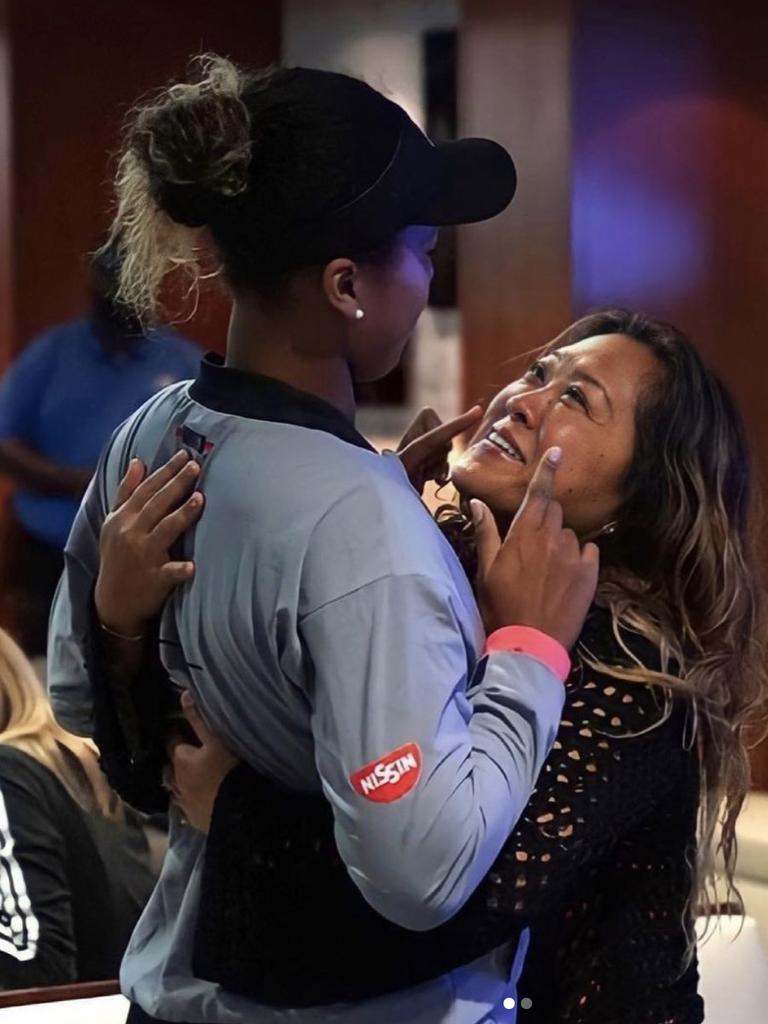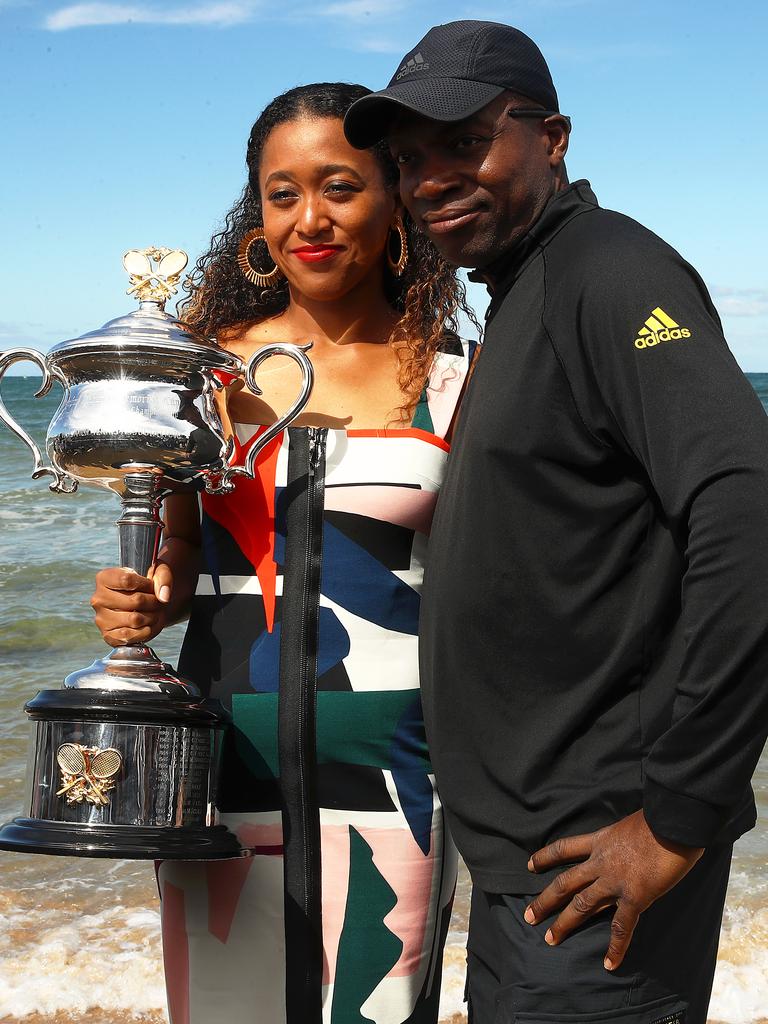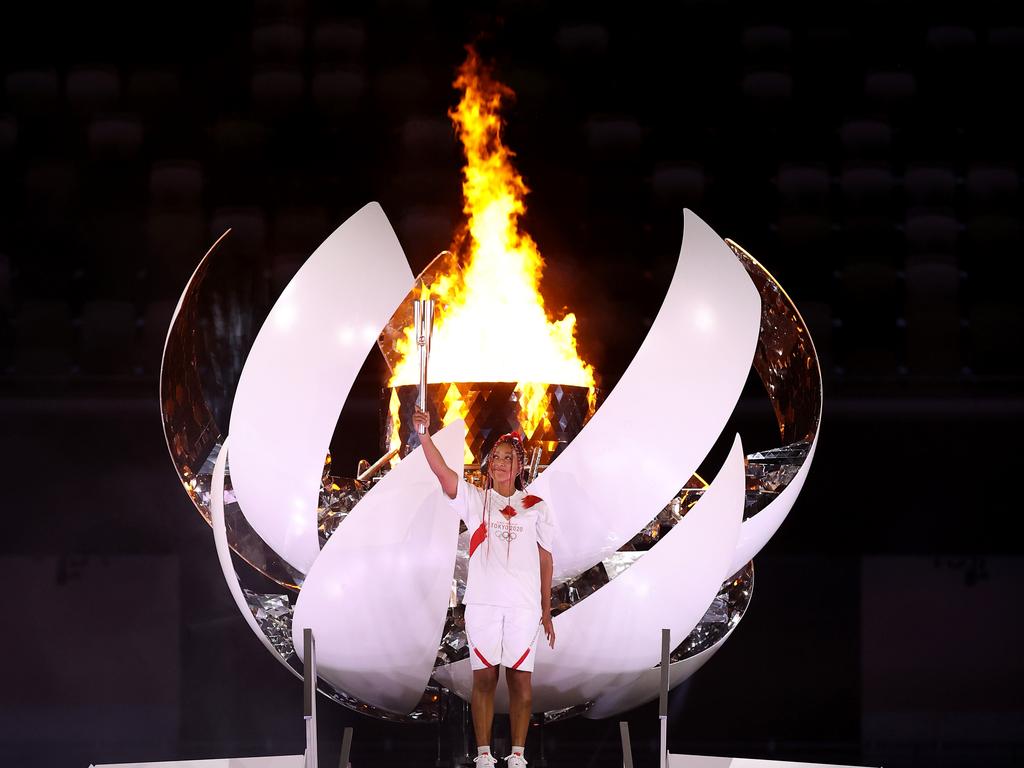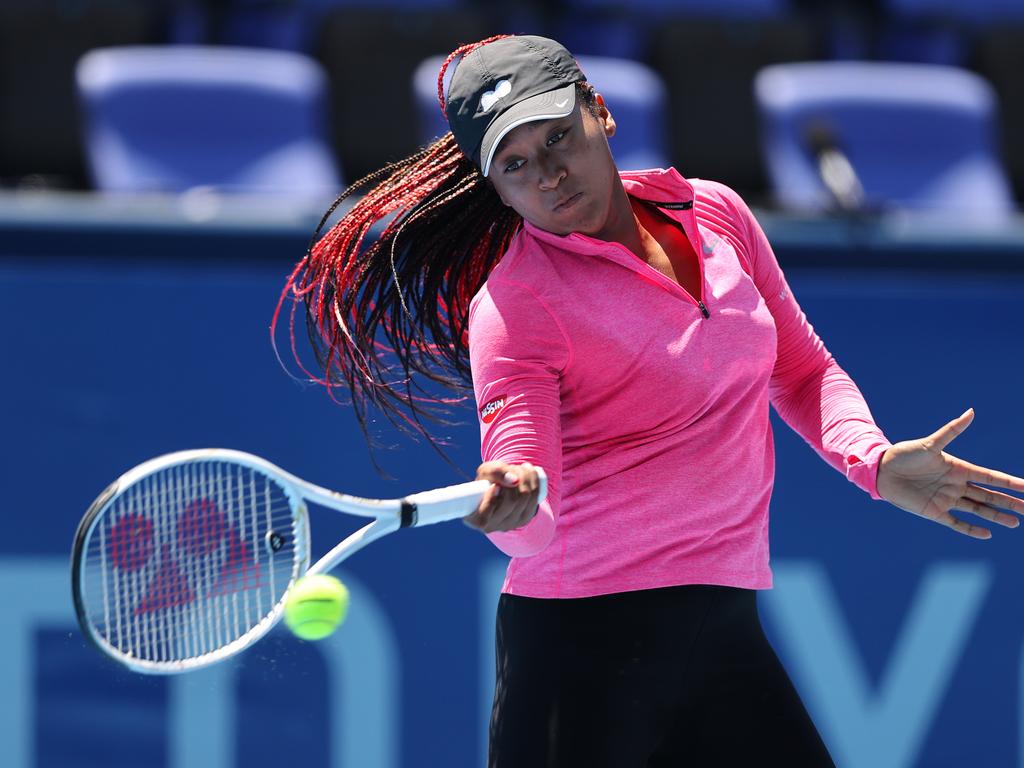Naomi Osaka’s candid confession ahead of Tokyo Olympics campaign
An overheard conversation shows why Naomi Osaka is still unsure of herself, despite being one of sport’s leading voices for equality.
Images of Naomi Osaka holding the Olympic flame on Friday evening made front pages across the globe, but there is a deeper significance behind the iconic moment.
Following a brief absence from tennis, the four-time grand slam champion will return to the court this weekend to represent Team Japan at the Tokyo Olympics.
Fans have not seen Osaka in action since she withdrew from the French Open last month, citing mental health concerns.
But after missing Wimbledon to “recharge and spend time with friends and family”, the world No. 2 marked her comeback by lighting the Olympic Cauldron at Friday’s opening ceremony.
Watch Tennis Live with beIN SPORTS on Kayo. Live Coverage of ATP + WTA Tour Tournaments including Every Finals Match. New to Kayo? Try 14-Days Free Now >
Netflix docu-series Naomi Osaka premiered on the streaming platform last week, in which the 23-year-old discusses issues she has experienced with race and nationality.
Despite being one of sport’s leading voices for racial equality since the death of George Floyd, Osaka admitted to feeling as though she has not represented the half-black, half-Japanese community well enough.
“I should probably try to speak Japanese more,” Osaka confesses in the docu-series.
“I speak Japanese to my mum and my sister. They won’t say anything about the way that I talk because I have broken grammar.
“But now I’m in this spotlight, I’m thinking maybe I’m doing something wrong by not representing the half-Black, half-Japanese kids well.”
Osaka was born in Japan but migrated to the United States with her family at age three, eventually becoming a dual citizen. Her mother is Japanese, while her father is Haitian.
Under Japan’s Nationality Act, dual citizens must make a “declaration of choice” and forfeit one of their citizenships before their 22nd birthday.
Osaka therefore decided to renounce her US citizenship, announcing the move a few days before turning 22 in 2019.
“It is a special feeling to aim for the Olympics as a representative of Japan,” she told NHK at the time.
“I think that playing with the pride of the country will make me feel more emotional.”


Osaka has represented Japan since she was 14, so the decision to renounce her US citizenship was not all that surprising.
But the two-time Australian Open champion was disheartened by some of the reaction to her announcement.
“I don’t choose America and suddenly people are like, ‘Your black card is revoked.’ And it’s like, African-American isn’t the only black, you know?” she said.
“I don’t know, I feel like people really don’t know the difference between nationality and race because there’s a lot of black people in Brazil, but they’re Brazilian.”
Ironically, Osaka has also found it challenging to gain acceptance from some members of the Japanese community because of her African heritage.
Speaking to The Wall Street Journal last year, she recalled a conversation she overheard ahead of a match during her childhood.
“She was talking with another Japanese girl, and they didn’t know that I was listening (or that) I spoke Japanese,” Osaka told the publication.
“Her friend asked her who she was playing, so she said Osaka. And her friend says, ‘Oh, that black girl. Is she supposed to be Japanese?’ And then the girl that I was playing was like, ‘I don’t think so.’ I remember that specifically because, yeah, I sometimes feel like a lot of people think that way about me.”
Osaka’s father elaborated in the Netflix docu-series: “No matter what somebody does, as an immigrant in Japan, you never really are full Japanese. So we had our obstacles within our marriage … in how they looked at us.”

The colloquial term “haafu” is used to describe a person of mixed race in Japan, one of the world’s most monocultural nations.
Osaka’s role in the opening ceremony is therefore a significant moment in Japanese society, which has historically struggled to accept people of mixed race.
ABC broadcaster Kumi Taguchi told Channel 7 during the opening ceremony: “Naomi Osaka, haafu as they say in Japan, she has waxed and waned over the years and she had some issues in Japan with a lot of people saying is she really Japanese and there was a discussion going on behind the scenes.
“For me, it’s a hugely inspired choice when you’re looking at issues like diversity and acceptance for Naomi Osaka to light that flame.
“It’s not only the mental health aspect, which has been so rightly brought out, but this kind of sense of who someone is and their identity and that being put to the fore and being totally celebrated regardless of how many parts of your skin colour is built up over the years.”

READ MORE: Aussie swimmer’s shock Tokyo withdrawal
Osaka’s mother told The Wall Street Journal she and her husband decided at an early age their daughter would represent Japan.
“She was born in Osaka and was brought up in a household of Japanese and Haitian culture. Quite simply, Naomi and her sister Mari have always felt Japanese so that was our only rationale,” she said.
“It was never a financially motivated decision nor were we ever swayed either way by any national federation.”
Osaka will face China’s Zheng Saisai in the first round of the singles competition on Ariake Tennis Park Centre Court on Sunday.




